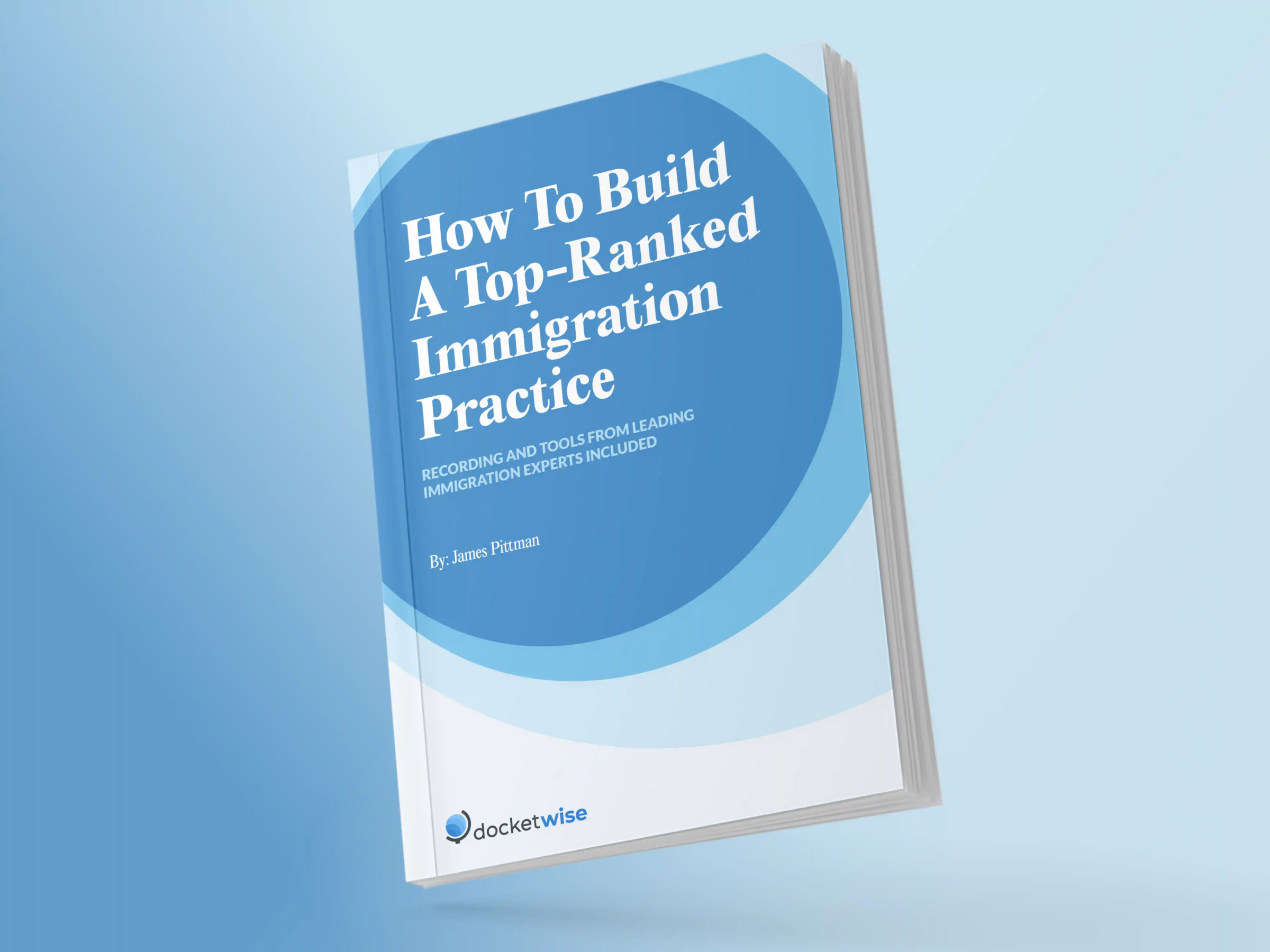Statistically, most of the lawyers practicing US immigration are based in the US. However, pursuing a US immigration law career outside of the US is now more possible than ever before, especially as working remotely more generally has become easier.
While it’s always important to review the US State Department’s document on Resources for Lawyers Working Overseas as a starting point, there isn’t a specific set of rules as to how to go about practicing US immigration abroad, both practically and from a business standpoint. That’s what this article is about - figuring out how to take your US immigration law experience abroad, and how to build a practice doing so.
If you want to practice US immigration law abroad, get US-based experience first.
The rationale behind this piece of advice is simple: if the focus of your practice is US immigration, there is a much higher chance for you to get experience if you start practicing in the US. Granted, you could gain some experience working for a firm abroad that has a US immigration department, but those firms are few and far between.
Therefore, a better strategy is to start off by working for an existing immigration law firm or in-house at a company that hires foreign talent to work in the US, e.g., on H-1B visas, alongside other experienced immigration attorneys and professionals. This is a great way to get exposure to different types of cases, learn how to handle them operationally, pick up good habits as a lawyer, etc. This is good advice for any attorney who wants to eventually start their own immigration law firm, whether in the US or abroad.
When you feel that you have sufficient immigration law experience and feel confident in your ability as an attorney, that’s when you can start to think about practicing US immigration abroad. But the next question is, what sort of immigration law do you want to practice? Depending on the answer, you might consider different strategies when it comes to making a name for yourself and developing business as an overseas US immigration attorney.
Let’s first consider one way to build a family-based US immigration law firm abroad wherever you decide to move - by getting involved in that community.
Next, build and leverage your network before you move abroad
Before you relocate to your new country of residence, broadcast your move to your existing network and use the connections you’ve already made to market your US immigration services. A simple step you can take to begin leveraging your network is to announce your move on social media, especially if you have a following that might be based in your soon-to-be new home. Remember that when you do move, you’ll be starting anew, so it’s important that others know about this important next step.
If you plan to practice family-based immigration law abroad, one way you can achieve success as a US immigration lawyer wherever you go abroad is by becoming a part of the relevant ethnic community here in the US and thus bridging the gap for when you arrive at your new home abroad. For example, if your sights are set on relocating to Vietnam, get involved in the Vietnamese-American community so you have a chance to meet people who have numerous relatives and friends in Vietnam who might be your future clients. Whether you attend community events, connect with groups or associations to provide immigration services to their constituents, etc., becoming known as a trusted and experienced US immigration expert within a particular culture or community is key.
If you plan to practice business or employment-based immigration law abroad, consider becoming a member of a chamber of commerce between the US and your soon-to-be home country. For example, in many US cities, there are German-American, French-American and many other specialized chambers of commerce that you can join. By meeting business leaders, entrepreneurs, investors, and others based in the country you’ll be moving to who are inherently interested in expanding within, moving to, investing in or otherwise doing business with the US you can start to make connections that may prove fruitful once you move there.
If you’re relocating to a country where English is not the local language, knowing the language, or learning it once you move there, will not only make it easier to connect with locals, but also shows that you’re more than a temporary visitor, helping you build an even stronger network and eventual client base. Language skills could be essential depending on where you’re planning to move, so research this aspect as early as possible and invest the necessary time in learning the language before you move if you’re going to need it to do business.
Finally, figure out how to market your US immigration firm locally in your new country
Once you’ve gained the right experience, built a network with individuals or companies tied to your new home abroad, and finally move there, it’s important to figure out how to market your services in a way that makes local individuals or companies want to work with you instead of a US immigration law firm that’s actually based in the US. In this section, we’ve covered some of the ways you can market your services in your new location. Of course this isn’t an exhaustive list, but it’s a couple of ideas to get started.
Market your ability to help clients work through their documents in person. As an immigration tech company this might seem like a counterintuitive aspect for us to promote, but the reality is that some clients, especially those who might be uncomfortable using technology or for whom legal language may be difficult, prefer to get help in-person. Thus you can promote the ability for a client to see you in person as they’re working on their immigration applications as one way to separate yourself from the competition.
Market your ability to accompany your clients to US consulate appointments. Visa appointments can make people nervous, and preparing for them is important, so marketing your ability to represent clients at interviews in person can be a major selling point.
Market your familiarity with obtaining necessary records in-country and presenting them in the correct format with excellent translations. Various countries have many different formats for civil documents such as birth and marriage records as well as legal documents such as police clearances and military service records. The US State Dept.'s webpage Visa Reciprocity and Civil Documents by Country provides guidance concerning what format of each type of document is needed from each country and from which government office these can be obtained to use for US immigration purposes. As an in-country expert on US immigration law, you are excellently positioned to advise your client of these particulars so no mistakes are made that would add time and expense by creating the need for repeated trips to government offices.
Use Docketwise to manage your US immigration cases from anywhere
Regardless of your location, you need a reliable, streamlined system to help you support your firm. Our mission at Docketwise is to help immigration lawyers do what they do best - focus on doing great work for their clients while knowing that the rest of their practice is streamlined, automated and digitized. Docketwise can help you streamline and digitize your practice so that you can spend more of your time applying your legal knowledge to achieve the most positive outcome possible for your immigration law clients.
If you want to learn more about how Docketwise can help you streamline your practice — from client questionnaires to form-filling to case management and more — schedule a demo to talk to one of our team members.
And don’t forget to sign up for our Immigration Briefings newsletter for daily and weekly immigration updates!
Unlock Your Success as an Immigration Lawyer.
Download Now
About the author
James E. Pittman is a distinguished immigration attorney, co-founder of 8am DocketWise, and Director and Subject Matter Expert (SME) in immigration at 8am, a leading platform delivering purpose-built solutions for legal and accounting professionals. A former patent attorney, he later built a highly regarded U.S. immigration practice and is a sought-after CLE educator on immigration law and ethics. James is admitted in NY, NJ, before the USPTO, and hosts the DocketWise video podcast Immigration Uncovered.

